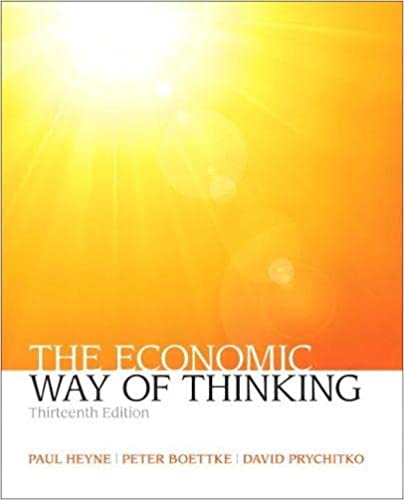
The Economic Way of Thinking 13th Edition by David Prychitko, Peter Boettke, Paul Heyne
Edition 13ISBN: 9780132992695
The Economic Way of Thinking 13th Edition by David Prychitko, Peter Boettke, Paul Heyne
Edition 13ISBN: 9780132992695 Exercise 8
The analysis in the preceding two questions raises an interesting issue: Why did OPEC succeed so well for so long in raising the world price of oil? A major part of any answer is contained in the concept of the marginal cost of producing and selling oil. The cost of extracting oil from an established field can be very low indeed, so low as to be almost negligible. But the relevant marginal cost is the cost of extracting and selling. In the 1970s, many respected parties were predicting that, because the demand for petroleum products was highly inelastic, and the world's reserves were quickly running out, the price per barrel might rise by the end of the century as high as $1,000 a barrel. How do expectations of such dramatically higher future prices affect the opportunity cost of selling oil currently? How would such expectations solve OPEC's "cheating" problem? Why did those extravagant expectations, so common in the 1970s, disappear by the mid-1980s?
Explanation
The question mentions that though the co...
The Economic Way of Thinking 13th Edition by David Prychitko, Peter Boettke, Paul Heyne
Why don’t you like this exercise?
Other Minimum 8 character and maximum 255 character
Character 255


